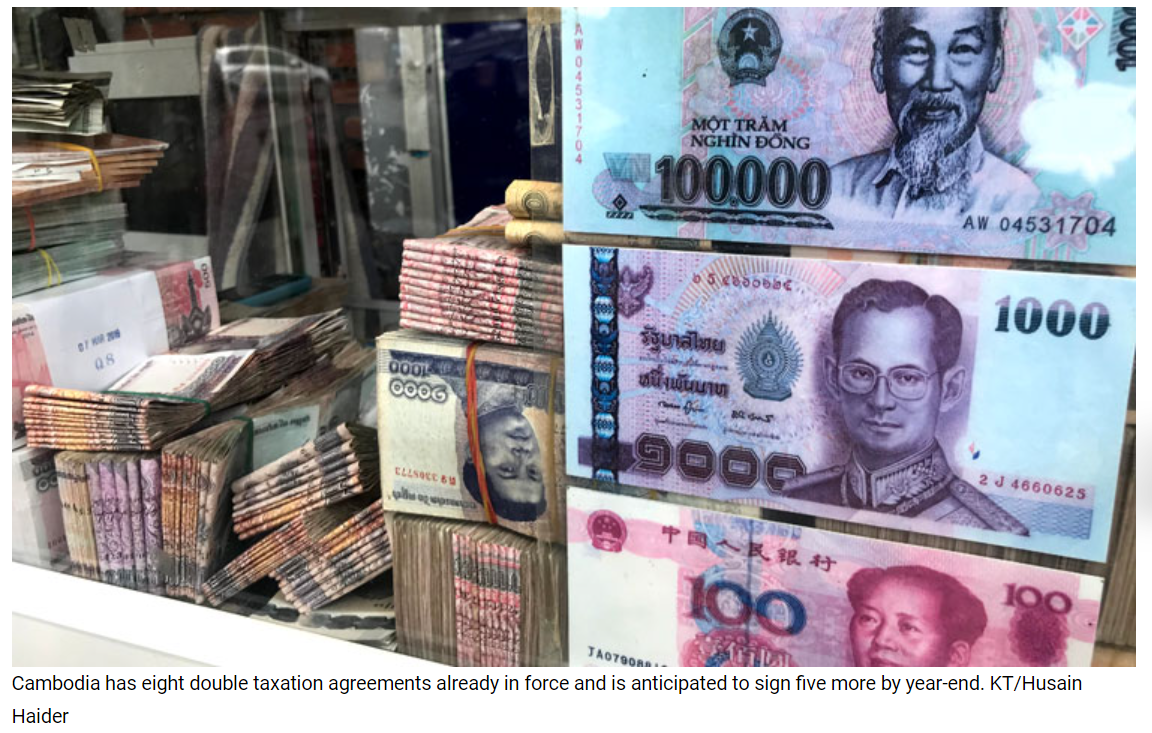Cambodian firms are closely observing tax changes abroad
Cambodian firms will closely monitor how neighbouring countries fare as the global community moves “aggressively” to implement the domestic tax base erosion and profit-shifting (BEPS) policy.
A total of 130 countries have signed up for the tax policy which will impose a 15 percent tax on multinational firms that provide goods or services in countries where they do not have an office.
“I will watch closely how it works in other countries and see how they are doing with them and whether we can adopt these kind of principles for a minimum amount of taxation for business activity,” said Ernst & Young Cambodia Director of Transfer Pricing Services Brendan James Lalor.
“Big companies like Apple and Amazon can sell their products in Cambodia without having an office in [the Kingdom] and that makes it difficult for the GDT [General Department of Taxation] to tax them. It has come to a head over the past two years,” he continued. Legal and tax advisory firm DFDL Cambodia Deputy Managing Director and Head of Cambodia Tax Practice Clint O’Connell noted that while Cambodia is a non-BEPS country, it has already established regulations that will help the Kingdom garner tax revenue from the Law on E-Commerce and VAT Law. BEPS refers to tax planning strategies used by multinational enterprises that exploit gaps and mismatches in tax rules to avoid paying tax. Developing countries’ higher reliance on corporate income tax means they suffer from BEPS disproportionately.
“Even though Cambodia is not an OECD [Organisation for Economic Cooperation and Development] country and has not signed up for BEPS or Pillar One or Pillar Two, it is certainly aware of these international developments and Prakas 098, introduced in 2020, broadened the definition of permanent establishment to include non-resident persons who provide services to people in Cambodia,” explained O’Connell.
“There will be some discussions in the coming months, particularly because Cambodia has set up [regulations on] e-commerce and value-added tax. This is a bit of a grey area and there is some uncertainty… for e-commerce firms regarding what the distinction is between income tax, permanent establishment and the low threshold under Prakas 098.”
O’Connell made the comments during the third session of the European Chamber of Commerce’s Summer Tax Series focusing on transfer pricing and double taxation agreements (DTAs).
Cambodia has eight DTAs already in force and a ninth will come into force on Jan 1.
Most recently, the Kingdom also inked a DTA with Macau which is anticipated to be enforced at the beginning of 2022.
O’Connell said he anticipates additional DTAs to be signed with Myanmar, the Philippines, Laos, Turkey, Japan and Slovakia by the end of this year.
DTAs help avoid double-taxation issues for firms operating in multiple jurisdictions.
The inking of treaties makes the Kingdom more investor friendly because businesses are incentivised through tax credits.
“The ojective of DTA is to get relief from double taxation. If Cambodia were to tax income from a business activity and standard 20 percent tax, then the [hypothetical] company in Singapore would get a tax credit to avoid double taxation in Singapore,” said O’Connell.
Much of the discussions during the webinar yesterday focused on transfer pricing – commonly used when parent companies loan funds to their Cambodian subsidiaries.
Globally, tax authorities need to investigate whether transfer pricing transactions are conducted fairly.
James Lalor spoke passionately about the Arms-Length Mechanism which requires firms to ensure subsidiaries are given loans market rates – ensuring that governments do not lose out on valuable revenue.
Source: https://www.khmertimeskh.com/50931082/cambodian-firms-are-closely-observing-tax-changes-abroad/


 Thailand
Thailand




